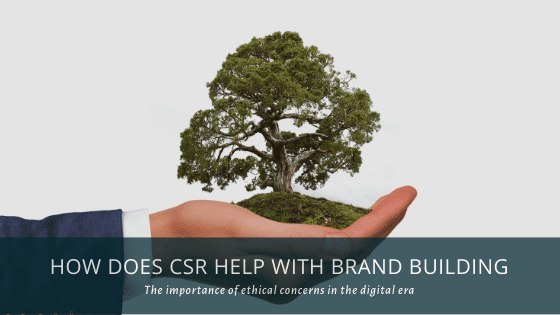Last month, we published a piece discussing why it is important for you to identify your key brand message. In this article, we discuss how ethical concerns are more important than ever in conversations surrounding PR and marketing — and what having a strong brand message has to do with it all.
Recap: How important is identifying your key brand message as a startup
Why should you care?

You should care because people care now, more than ever. For the past few years, we’ve heard millennials get lambasted for killing various markets, from diamonds to fabric softener. However, it may be that millennials are murdering markets for a good cause. According to Deloitte’s Global Millennial Survey, “about a third [of millennials surveyed] said they have stopped or lessened business relationships because of a company’s ethical behaviour, and more than a quarter of millennials said they’ve backed away from organisations because of their positions on political matters.”
Considerations about ethics and social responsibility lie at the heart of the spending decisions of Gen Z and millennial consumers; if they disagree with a company’s ethical behaviour, they take their coin elsewhere. Yet, it isn’t enough to simply adopt the pet cause of the week and be done with it. Pepsi’s tone-deaf and widely-lampooned advertisement in 2017 demonstrates that consumers are savvy enough to know when brands are simply trying to cash in on “wokeness”. So here are a few things that brands need to consider before they adopt a cause.
Read more about how to market your brand to a millennial audience.
Know who you are


The foundation of cause-driven work done right is authenticity and consistency. This is where your key brand message comes in. When identifying your key brand message, ask yourself: What is most important to you and your brand? If you’ve put ample thought into establishing the identity of your brand, you should have a clear idea of what your brand stands for and supports.
Once you know what matters to you, take a step back and do your due research on the cause you want to back. Don’t hijack the discussion — take some time to find your brand’s place in the larger discourse. For example, P&G’s award-winning campaigns regarding anti-black racism in the US didn’t position the brand as an authority on the subject; rather, the short films facilitated a much-needed conversation.
Most importantly, stick to it. Don’t show up at only one fundraising and call it a day. Demonstrate your brand’s dedication to the cause. This requires determination, and even a measure of risk for more controversial issues — but if you’ve done your thinking about what matters most to you and your brand, then you are already on the right track.
Read more about the role of PR ethics in reputation management.
Take a stand
Shallow considerations about social causes won’t cut it any longer – much less ignoring social issues entirely. However, if you’ve taken the time to consider your brand’s voice and identity, it will be less difficult to find a genuine cause to stand for – and people to stand with you.
If you’re curious to learn more about public relations or want to speak to a SYNC consultant about starting your brand’s PR journey, contact us at [email protected].

